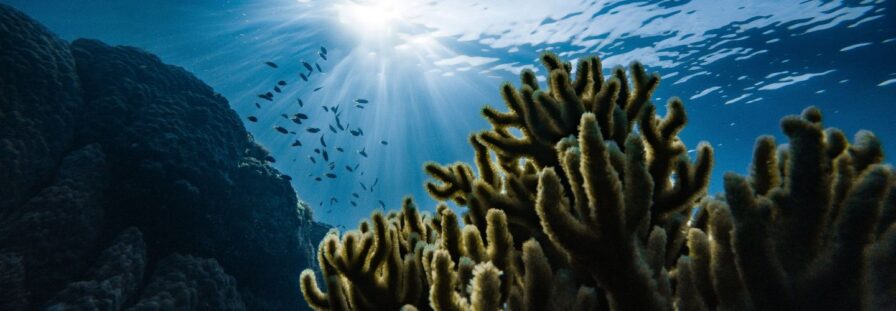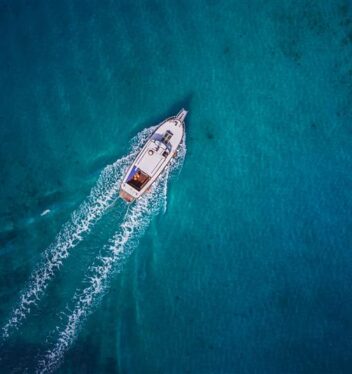Overfishing, climate change, pollution, the destruction of habitats, and other forms of human exploitation have all harmed our oceans in ways that we might not yet even fully understand. However, there are steps that individuals, businesses, and governments can take to help conserve the marine environment, help maintain its health and support its ecosystem.
In this short guide, we will outline some of the commitments you can make and how ATPI Halo can help to ensure your crew logistics are as sustainable as possible.
Cut down on plastic use
Plastic is generally not biodegradable, can remain in the ocean for hundreds of years, and has a devastating impact on marine wildlife. According to a 2021 study, 24.4 trillion microplastic particles are floating on the surface of the ocean and each one consumed can cause fatal health issues for organisms. Larger pieces of plastic may not be ingested but can still entangle birds, dolphins, whales and turtles, leading them to suffocate, starve, or drown. Cutting down on the use of plastics in your supply chain, within your organisations, and among your employees can all contribute to conserving a marine environment.
Consume seafood mindfully
Fish is an important protein source for millions of people worldwide but 94% of the ocean’s fish stocks are overfished. This can interfere with food webs and disrupt the marine environment’s natural balance. Where possible, choosing to consume eco-friendly species with a healthy population that are sustainably harvested can help reduce human impact on the marine food chain. You can also help to reduce carbon emissions by choosing to buy locally sourced seafood with a low carbon footprint.
Reduce your carbon footprint
There are several steps that organisations and crews can take to help minimise their carbon footprint. Facilities can be improved by making easy switches like substituting standard bulbs for energy-efficient lighting and reducing the temperature on thermostats.
When it comes to travel, employees can be encouraged to use technology options rather than face-to-face meetings, domestic public transport instead of taking short-haul flights; travel on direct flights when flying is unavoidable; coordinating travel plans to allow the crew to share transportation; and booking hotels that have robust environmental policies in place.
Reduce greenhouse gases and offset your CO2
Greenhouse gases, including CO2, are contributing to ocean acidification, warmer waters, and rising sea levels. Becoming aware of your organisation’s CO2 emissions and working to offset carbon can help to reduce the impact of unavoidable travel activity on the marine environment.
ATPI Halo is supporting clients to reduce their CO2 travel footprint via the Measure-Reduce–Offset methodology. The ATPI Halo team will review your current CO2 emissions, implement a fully transparent reporting process, and plan travel in line with reduction targets by employing comparative data from different routes and modes of transport.
ATPI Halo also offers a varied offset portfolio to suit a variety of clients. This has been built in conjunction with the world’s leading carbon reduction project verifiers and all projects are is aligned with several of the United Nation’s Sustainable Development goals. Importantly, our Delta Blue project is a blue carbon project with a specific focus in SDG 1
In partnership with Respira, one of the world’s leading CO2 project providers, ATPI Halo aims to drive forward sustainable travel programmes while also supporting investment in high-quality carbon offset projects with verified additionality like Qianbei Afforestation, which improves CO2 sequestration by planting native trees and prohibiting logging.









